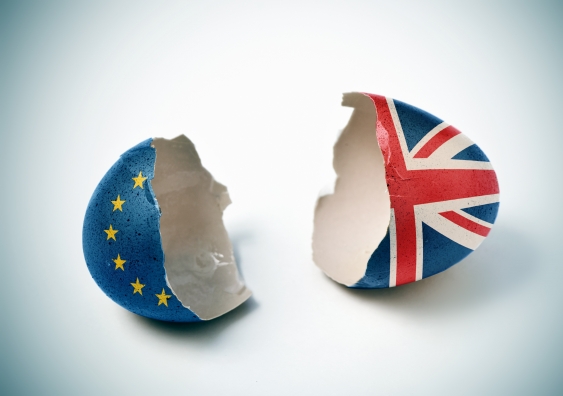Don’t panic (yet) as UK heads for the Brexit
Britain’s decision to depart from the European Union has caused convulsions in the Australian sharemarket but things may yet turn out OK, according to the UNSW Business School's Richard Holden.
Britain’s decision to depart from the European Union has caused convulsions in the Australian sharemarket but things may yet turn out OK, according to the UNSW Business School's Richard Holden.

|
OPINION: Britain’s decision to depart from the European Union has caused convulsions in the Australian share market but things may turn out OK, according to a senior academic at the UNSW Business School. The pound was hammered as the ‘Brexit’ vote came through, losing 20% of its value in a few hours. Fears of the implications have seen huge falls in most stock markets and commodities. However, the UNSW Business School’s Professor Richard Holden says: “In the short term, Australia and the world’s economy is probably OK. We shouldn’t panic – but we should be aware something disastrous might happen in the next few weeks." The pound has fallen in early trading in Asia on Monday, adding to Friday's record one-day decline, the global stock markets have plunged, and there was a flight to safety in capital markets that hammered currencies like the Australian dollar. Professor Holden says the big concern is that short-term lending markets could dry up. “That caused the chaos surrounding Lehmann’s demise in 2008. Banks around the world rely on short-term funding. If those markets freeze, then there is an effective bank run. Worryingly, Australian banks rely more on short-term funding than almost any in the world. If confidence remains, credit is supplied. If not, seemingly small events can cause an expectations death spiral.” Professor Holden, an ARC Future Fellow, warns that an event like Brexit, that shakes confidence and creates massive political uncertainty, will have many stages: “Today’s announcement by the EU that negotiations on a Brexit can only commence once the trigger is pulled on the Article 50 exit route – which must be completed in two years – adds certainly to the process, but it means the UK can’t ‘test the waters’ with a long drawn out series of discussions. When the UK tells Brussels that it really is going out, then that really is it, and the real rollercoaster on the markets begins.” He sums up the position by saying there are a lot of known unknowns. “And the markets hate uncertainty. We don't yet know who will be Britain's prime minister, or even opposition leader. Scotland may leave the UK. Or there is a chance that Scotland could block the UK’s exit under an interpretation of the Scotland Act 1998, under which Scotland gained its own Parliament. There is even a chance of another referendum. With all this going on, expect the markets to be on a rollercoaster for the next week – the Australian election is a minor sideshow in comparison.” |